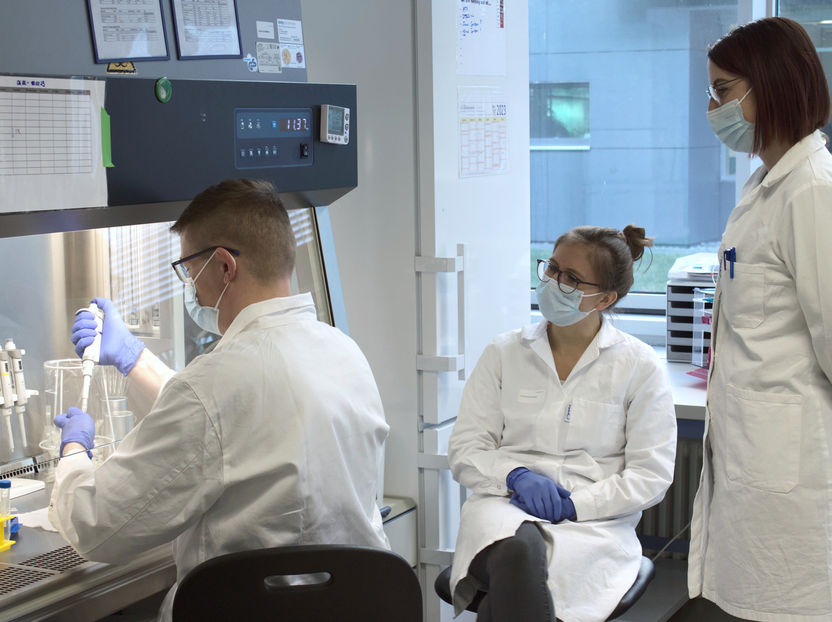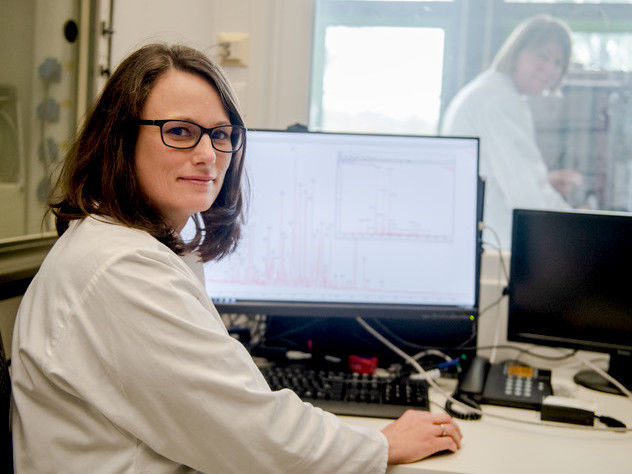Biotech start-up passes on expertise on future organ-on-chip technology
Interdisciplinary knowledge exchange
With an academy at the BioInstrumentezentrum in Jena, the biotech company Dynamic42 GmbH is supplementing its services in the field of advanced training. The company began in 2018 with the development of models on biotech chips, which are used to test drugs and other substances on human organ replicas (organ-on-chip). Today the young company is not only active in contract research, but also sells the chips as well as the model systems for research institutions or, for example, the pharmaceutical industry. With external training courses at the customers’ premises, Dynamic42 supports the scientists in the correct application of the complex organ-on-chip technology. To complement this offer, the company has also established the Dynamic42 Academy internally, in which it passes on its expertise to interested scientists in an intensive course lasting several days.

Dynamic42 Academy in February 2023
Dynamic42 GmbH
In practical learning units, the participants of the Dynamic42 Academy are trained in the handling of the biotech chips developed and produced in-house as well as in working with the highly developed test systems. This includes the independent creation of cell and organ models. This means that users of the organ-on-chip technology can immediately apply the systems at a high level in their own research projects. This saves time and considerable costs in individual research projects, e.g. in the field of drug testing.
Interdisciplinary knowledge exchange
The academy is aimed in particular at scientists from the fields of pharmacology, toxicology, oncology, pulmonology, pneumology, drug development and experimental virology. With this offer, Dynamic42 responds to the need to make the rapidly developing organ-on-chip technology quickly and efficiently accessible to areas of research and development.
The response from experts to the offer is positive and the demand from interested participants is constant. “We look forward to participants with the most diverse scientific questions at every course. In addition to the intensive transfer of knowledge, this always results in an insightful professional exchange. At the end, everyone goes back to their research sites enthusiastic and eager to use the techniques they have learned in their own projects. We also support our participants in this beyond the framework of the academy,” emphasises Dr. Martin Raasch, Managing Director of Dynamic42 GmbH.
Organ-on-Chip and the future of medicine
Organ-on-chip technology points the way to the future of medical research and development. It is not only suitable for testing active substances, but also for basic research or the investigation of infectious diseases. The method is used, for example, in research into lung infections. By replicating a human organ environment close to the body in the models with human tissue, the effects of infections can be precisely observed. This will open up new approaches for therapeutic questions in the future and reduce the need for animal experiments, for example in drug testing.
In addition, organ-on-chip is a suitable method for developing advanced, individualised medicines. Human organ cells are cultivated in the biotech chips on a membrane and in channels in specific arrangements. In this way, tissue samples from individual patients can be cultivated directly and examined for the respective medical interest. For example, the observation of the development of tumour cells is made possible. The findings can be transferred to individual treatment methods.
Most read news
Other news from the department business & finance

Get the life science industry in your inbox
By submitting this form you agree that LUMITOS AG will send you the newsletter(s) selected above by email. Your data will not be passed on to third parties. Your data will be stored and processed in accordance with our data protection regulations. LUMITOS may contact you by email for the purpose of advertising or market and opinion surveys. You can revoke your consent at any time without giving reasons to LUMITOS AG, Ernst-Augustin-Str. 2, 12489 Berlin, Germany or by e-mail at revoke@lumitos.com with effect for the future. In addition, each email contains a link to unsubscribe from the corresponding newsletter.
Most read news
More news from our other portals
Something is happening in the life science industry ...
This is what true pioneering spirit looks like: Plenty of innovative start-ups are bringing fresh ideas, lifeblood and entrepreneurial spirit to change tomorrow's world for the better. Immerse yourself in the world of these young companies and take the opportunity to get in touch with the founders.
Last viewed contents
Gamma/delta_T_cells

An intestinal chip model takes research of fungal infections to a new level - Successful cooperation between science, clinic and start-up
Postmature_birth
Category:Biological_warfare
Category:Mood_disorders
Amanita_virosa





















































